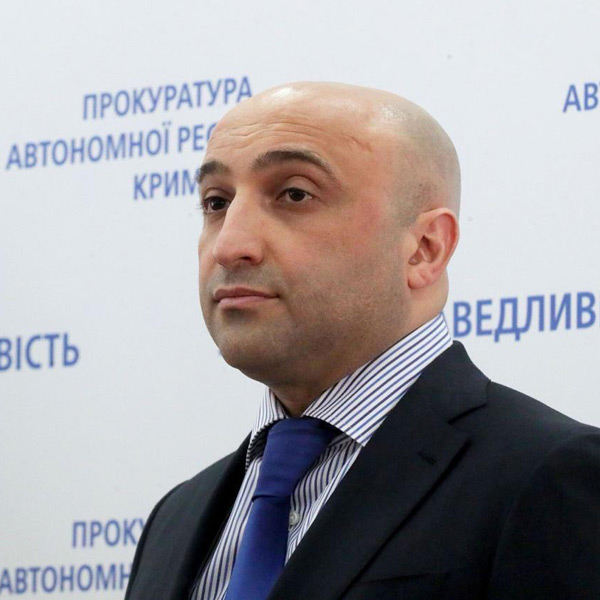“Recently, an Embraer 190 Azerbaijan Airlines plane, which was on its way from Baku to Grozny, crashed in the territory of Kazakhstan due to an alleged shooting down by Russian air defense. There were 62 passengers and 5 crew members on board, 28 of them managed to survive.”, — write: www.pravda.com.ua
Recently, an Embraer 190 Azerbaijan Airlines plane, which was on its way from Baku to Grozny, crashed in the territory of Kazakhstan due to an alleged shooting down by Russian air defense. There were 62 passengers and 5 crew members on board, 28 of them managed to survive. This is another tragedy that raises important issues of civil aviation safety, especially in the context of armed conflicts. As a person who headed the investigative teams into the downing of the MH17 and PS752 planes from Ukraine, I cannot but note certain similar points: the nature of the damage, the confusion of versions in the first days. But it is equally important to pay attention to a number of other important things.
According to the General Directorate of Intelligence, Ukrainian drones have already demonstrated the ability to travel up to 2,000 km deep into the territory of Russia, where there are numerous military bases. That is, legitimate goals. Despite this, Russian airspace remains open to civil aviation. This paradoxical state of affairs creates a serious danger for passengers, as errors or incidents involving air defense systems are possible.
Currently, Russia has introduced temporary restrictions on flights in the cities of Sochi, Kazan, Samara, Grozny and Makhachkala. However, this is not enough.
Some Azerbaijani politicians and state media have already called on Russia to admit that the plane was shot down by its air defense and to apologize in accordance with the norms of the Chicago Convention. And from this we can already draw certain conclusions about the position of the Azerbaijani side. At the same time, they compare this tragedy with the incident on November 9, 2020, when Azerbaijan mistakenly shot down a Russian Mi-24 military helicopter, admitted it, apologized and paid compensation. But this comparison is incorrect: then we were talking about a military aircraft in the zone of active hostilities, and now a civilian aircraft was affected.
International practiceWe do not see the International Civil Aviation Organization (ICAO) recommending closing the skies over Russia, although the risks to civil aviation are obvious. For now, the organization can recommend that Russia implement restrictions and publish relevant NOTAMs (operational information messages in the field of aviation) to avoid a repeat of the tragedy. In addition, the ICAO can theoretically appeal to the UN General Assembly with a demand to close Russian airspace. Although Russia is likely to impose a veto at the UN Security Council level, such a move would draw international attention to the problem.
This is also important in the context that airlines can independently avoid Russian airspace, guided by their own safety assessments. Many organizations and countries are already extremely cautious about flights through war zones. Take the same FAA (USA) and EASA (EU) – two key organizations responsible for regulating and ensuring safety in aviation. Each of them at one time or another recommended restrictions on flights over Iraq, Iran, Syria, Lebanon, etc. However, airlines from other parts of the world still choose a route through Russia or to Russia. But is such a risk justified? A recent tragedy has shown that it is not.
Let me remind you that Ukraine has experience of closing its airspace since 2014, that is, the beginning of the war. Then, in the first months of the military operations in Donbas, restrictions on the height of flights were introduced due to the risk of shelling. And after the tragedy of Malaysia Airlines flight MH17, which was shot down at an altitude of 10 km, Ukraine completely closed the airspace over the occupied territories of Donetsk and Luhansk regions.
Why is it important for Ukraine?Closing Russian skies to civil aviation will have several consequences. First, it will reduce Russia’s income from transit flights, which now bring significant profits, which can be used, in particular, to finance aggression against Ukraine. Secondly, it is a signal that Russia is not able to ensure full control over its own territory and security, which will demonstrate its vulnerability and weakness. After all, currently Russia in its international policy continues its attempts to pass itself off as a superpower and thus sway a number of other states to its side. That is, it is a matter of reputation and undermining of political authority.
Of course, the key to the Embraer 190 situation remains an objective investigation under the Montreal Convention for the Suppression of Unlawful Acts Against the Safety of Civil Aviation and the Chicago Convention on International Civil Aviation. Society must know the truth about the causes of the disaster. And if it is confirmed that the plane was shot down, it will become another argument for closing the sky over Russia. Which will have economic and political consequences, weakening the Russian Federation and its influence on other states. In addition, the responsible party must not only apologize, but also pay compensation to the families of the victims and the victims.
This tragedy is not only the pain of the affected families, but also a signal to the international aviation community: opening airspace over a territory where there is a high level of threat is unacceptable in today’s world.
Gunduz Mamedov
